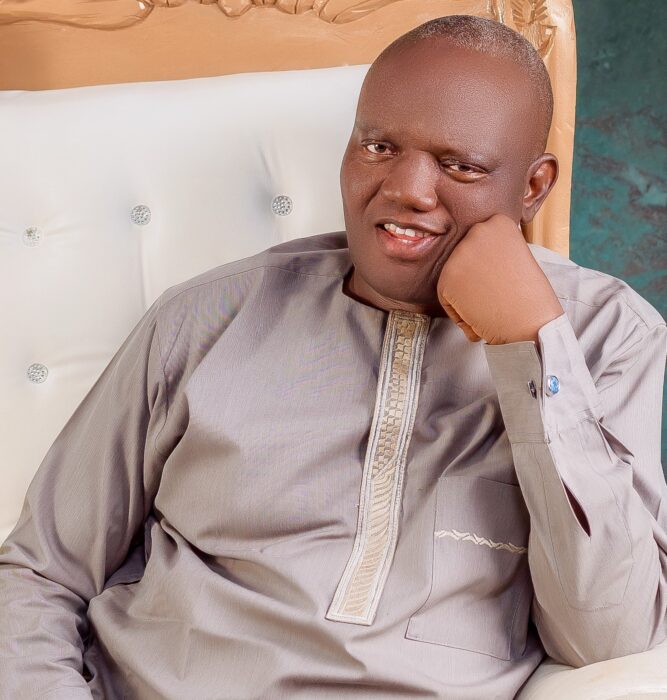Africa
Religion as a Tool for National Development (1) -By Abiodun KOMOLAFE
In an earlier period, the fight for social progress has often been linked to the role of religious activists. As I have argued elsewhere, the British Labour Party was originally formed by the efforts of Christians, largely Methodist clerics. The influential Beveridge Report, which paved the way for the creation of a welfare state that has been widely emulated globally, was the work of Christian socialists, including William Beveridge himself and Clement Attlee, who later became Prime Minister, as well as many other Christian activists.

The primary focus of every known religion is to lead carnal-minded people to become spiritually minded. It is to enable mortals to rise from their lowest ebb to a transformative stage, where they can connect with the divine.
This spiritual growth gives rise to morality and essential values, which in turn fosters economic and national development. On the other hand, a more critical examination reveals that religion has also been used as a tool for colonialism and systematic enslavement, stressing the complexities of its role in society.
Basically, Nigeria today is confused about how to define religion and whether it should be a tool in the process of conquering poverty and attaining sustainable development. This confusion may be rooted in a deeper historical issue, as Nigeria has always had a disadvantage, as people like India’s post-Independence-era Prime Minister Jawaharlal Nehru pointed out by neglecting its indigenous religions.
For people like Nehru, this is a disadvantage. It is a point worth considering when we look at how the core beliefs, norms and traditions of Buddhism, Taoism, Hinduism and others have been used to propel the process of development. This historical context is particularly relevant when considering the current state of religion in Nigeria. It is a point worth considering and it shouldn’t be just an academic exercise.
Currently, religion in Nigeria no longer appears to be a driving force for sustainable development, unlike in the past. Starting with the establishment, well over a century, or perhaps over one hundred and a half years ago, the establishment of CMS Grammar School (in 1859) Methodist Grammar School (in 1878), religion was actually a very important factor.
It can be argued that no pre- or post-amalgamation government has matched the pioneering efforts of Christian missionaries and their Muslim counterparts, such as Ahmadiyya and Ansar-Ud-Deen, in human capital development or healthcare infrastructure. Those who take a revisionist stance, which led to the dismantling of these efforts, may forever be remembered for the consequences of their actions. The negative effects of this destruction are now notoriously evident!
Today, religion is no longer at the forefront of development efforts. Instead, a new phenomenon has emerged where religion has become a commercialized venture in a country with limited economic opportunities. This is evident in the proliferation of ‘prophecies’ that serve as a means to curry favour and ingratiate oneself with those in power. Unlike in the past, religion has lost its prophetic voice. It has failed to hold power accountable.
These days, adherents of various faiths, including Christians and Muslims, are heavily burdened, yet many struggle to make ends meet, going home and to bed hungry. Moreover, despite their contributions to the establishment of schools through religious institutions, many poor worshippers can’t afford to send their children to those schools due to high tuition fees. While there are notable exceptions, religion has largely lost its moral authority as a counterbalance to government failures and corruption. This is unfortunate, because it wasn’t always like this!
Once upon a time, religion was a moral force and has changed societies. For those who doubt this, R.H. Tawney’s seminal work, ‘Religion and the Rise of Capitalism’ is a compelling read. Despite being a Marxist, Tawney’s book was paradoxically banned in the Soviet Union, most likely due to its nuanced portrayal of Christianity.
Few religious leaders, including the General Overseers and Popes, have elevated the core teachings of Christianity to the same level of prominence as Tawney’s work. A good honourable exception is, of course, the Liberation Theologians who bravely challenged military rule in Latin America and revitalized the transformative ethos of Christianity.
In an earlier period, the fight for social progress has often been linked to the role of religious activists. As I have argued elsewhere, the British Labour Party was originally formed by the efforts of Christians, largely Methodist clerics. The influential Beveridge Report, which paved the way for the creation of a welfare state that has been widely emulated globally, was the work of Christian socialists, including William Beveridge himself and Clement Attlee, who later became Prime Minister, as well as many other Christian activists.
*To be concluded.
KOMOLAFE wrote in from Ijebu-Jesa, Osun State, Nigeria (ijebujesa@yahoo.co.uk; 08033614419 – SMS only)

























